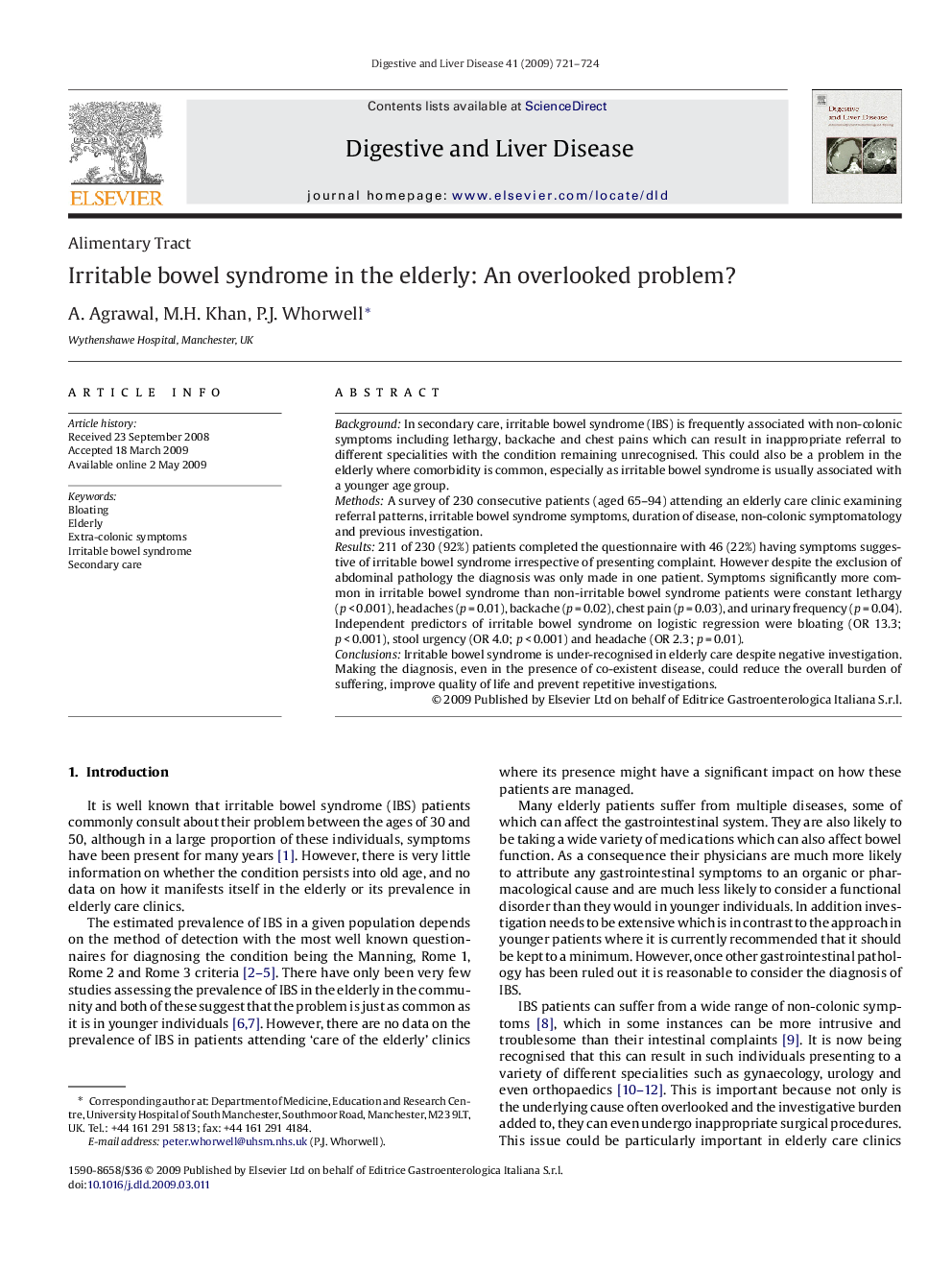| Article ID | Journal | Published Year | Pages | File Type |
|---|---|---|---|---|
| 3264601 | Digestive and Liver Disease | 2009 | 4 Pages |
BackgroundIn secondary care, irritable bowel syndrome (IBS) is frequently associated with non-colonic symptoms including lethargy, backache and chest pains which can result in inappropriate referral to different specialities with the condition remaining unrecognised. This could also be a problem in the elderly where comorbidity is common, especially as irritable bowel syndrome is usually associated with a younger age group.MethodsA survey of 230 consecutive patients (aged 65–94) attending an elderly care clinic examining referral patterns, irritable bowel syndrome symptoms, duration of disease, non-colonic symptomatology and previous investigation.Results211 of 230 (92%) patients completed the questionnaire with 46 (22%) having symptoms suggestive of irritable bowel syndrome irrespective of presenting complaint. However despite the exclusion of abdominal pathology the diagnosis was only made in one patient. Symptoms significantly more common in irritable bowel syndrome than non-irritable bowel syndrome patients were constant lethargy (p < 0.001), headaches (p = 0.01), backache (p = 0.02), chest pain (p = 0.03), and urinary frequency (p = 0.04). Independent predictors of irritable bowel syndrome on logistic regression were bloating (OR 13.3; p < 0.001), stool urgency (OR 4.0; p < 0.001) and headache (OR 2.3; p = 0.01).ConclusionsIrritable bowel syndrome is under-recognised in elderly care despite negative investigation. Making the diagnosis, even in the presence of co-existent disease, could reduce the overall burden of suffering, improve quality of life and prevent repetitive investigations.
